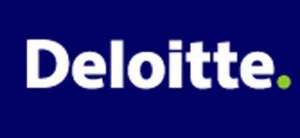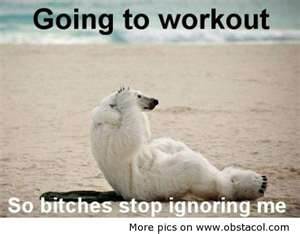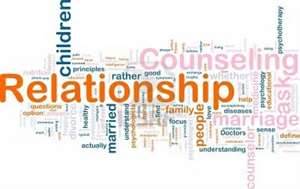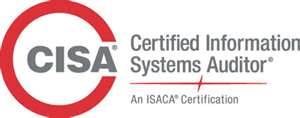As much as I love lending my hand to my colleagues and friends, I am not sure how many times I can repeat the same advice over and over until I lose the “inspirational” edge and doll out dull advices. So, before I lose my mojo, here is my outlined pros and cons for my friends and colleagues (and whoever else is reading this article) who’ve been struggling with the idea of leaving Reno.
Let’s deal with the cons first as I feel like you wouldn’t be reading this post if you’ve already determined that you are a Big4 kind of a guy or gal–most likely, you are reading this post because you’ve accurately identified the cons of leaving Reno and are having trouble overcoming them. The cons are actually quite simple (obviously they may be different from yours, but hopefully I’ve caught majority of yours): 1) leaving the family you’ve lived with all these years sucks, 2) leaving your friends behind sucks even more, and 3) Reno is actually a wonderful place to live in–I’m not gonna argue against the fact that it’s not the most habitable places out there, which is not what I mean by “wonderful place.”
Unless you’ve been beaten all of your life and hate your family’s guts, this is an absolute no-brainer–leaving family sucks. It sucks on multiple levels. First, you’re leaving behind tons of memories–memories that coerce us to believe that we have some sort of an obligation to protect them at all cost. Second, you immediately lose physical and emotional support. Believe it or not, we have these safety nets called “parents,” and their importance isn’t really fully realized, like everything else, until we’ve lost them. Even if you’re moving to a place just down the block from your old folks’ place, it’s just not the same. The difficulties of administrative chores we’ve taken for granted, such as getting internet at your new place, are magnified, and trying to do all of them as you get used to a whole new place can get overwhelming. If you don’t have a significant other, like myself, who can support you emotionally through this separation, you can feel lost, isolated, lonely, and even depressed–hard to overcome this con, no?
Leaving behind your friends is just as difficult if not more. These are people whom you sought refuge from when your family drove you bonkers. These are people you did crazy $hit with that you would never do or share with your family but want to do it anyway. These are people whom you shared your heartfelt moments and memories when you weren’t with your family–they are your “extended” family, if you will. The fear of losing them, and the fear of not being able to find people who cared for you just as much if or when you do lose them, is an immobilizing force that says, “just stay in Reno.” This is another excellent con that’s hard to beat.
Finally, Reno is, believe it or not, a wonderful place to live in. Maybe it’s because I live in the hottest place on earth, but contrary to what I preached when I was in high school, I enjoyed my life in Reno. It was few hours away from everything I wanted to do outdoor-wise–swimming, hiking, sun-bathing, snowboarding, etc etc. It’s four hours away from San Francisco and an hour flight down to Los Angeles. Additionally, it’s a small enough city that most people are genuine and light-hearted–if you’ve lived in a large city, such as Seoul, you can understand how vexing it can get dealing with manner-less jerks. Obviously, the weather sucks and snow can get irritating. But weather isn’t what I’m referring to when I refer to Reno as a wonderful place to live in–Reno is a testament to the myth that a perfect tapestry of genuine people and decent city size can’t be achieved. (I know this is debatable, so let’s focus on the topic of this post)
Now allow me to weave in my own personal struggles to my pros in order to give you a fuller picture–it may be easier for you to relate. I’m unbelievably close to my family–so much so that I can tell what they are thinking 24/7 without even looking at them. It was difficult to imagine coming home from work without that feeling of familiarity and comfort. There is one more person whom I felt that comfortable with, and I left her behind in Reno also. I’ve also developed friendships within two years of leaving for Las Vegas with whom I saw so much potential–one more year in Reno, I could’ve developed those “fledgling” friendships to once in a life time friendships. So, I left behind my loving family, amazing friends, and a friend who is the closest person I have to a significant other. Does this mean I value my personal career more than my personal life?
Big4 experience is invaluable–that’s why so many of us seek it. The training is top-class, and the benefits are amazing–both monetarily and non-monetarily. The experience looks great on the resume, and as the career progresses within a Big4 firm, it gets harder and harder to refuse lucrative job offers that are bound to flood your mailbox. It is the best start to an accounting career one could ask for. But when all of this is taken into account, the struggle becomes one of audacious and solitary journey to success against rainbows and sunshine life of familiarity and comfort–as Americans, how can we avoid the classic mistake of mystifying and dramatizing such an important decision, right? The good versus evil, rich versus poor, and fame versus family and friends. (I recommend watching The Family Man starring Nicholas Cage. Watching it makes this decision of going for Big4 even more difficult as the movie seriously asks the audience whether seeking fame and success is worth losing your loved one(s))
Most pros are self-evident. But my personal one is that this job, this position and my future with Deloitte, can provide me with a stabilizing life with a luxurious income in the future. It can put me in a position to start a loving family of my own surrounded by loving friends. Most importantly, if I so desired, it has the ability to enable me to go back to Reno, get a job that pays me six figures, and surround myself with my family and old friends whom I left behind–before I enter my mid thirties.
I don’t value my career more than my personal life, but I do tend to value my future more than my present. I saw this opportunity with Deloitte as one that would propel me the fastest to my personal goal, which is to have a loving family that I can support comfortably. I don’t have worldly desires, but I also don’t have provincial goals either. The con of picking a Big4 career is that I must make painful sacrifices now (and the worst thing about it is that my decision to make these painful sacrifices may not be perceived as difficult–some may view it as a selfish decision to advance my personal career which can be hard to handle). The pro of picking a Big4 career is that I can have a life in 5-10 years that many can only dream of–a life where I have a loving wife, loving children, and luxurious enough income with generous PTO to not have to stress about money and time before planning my trip to Disneyland every summer. Can a Big4 accounting firm guarantee me this possibility? No, but it’s a shame not to give it a try as Big4 gives me the best possibility.
You are not less courageous if you end up staying in Reno. You are not thought less of if you don’t go big. You simply have different values, and that doesn’t warrant anyone to tell you that you are cowardly and a lesser person. But if you are struggling, and haven’t been able to confidently decide to stay in Reno, hear me out–take this bet. Trust in your family and friends to be there for you even with the distance that may come between you and your family and friends. Trust in yourself to have the capacity to make an effort. This is you we are talking about. Aren’t you worth the bet?








